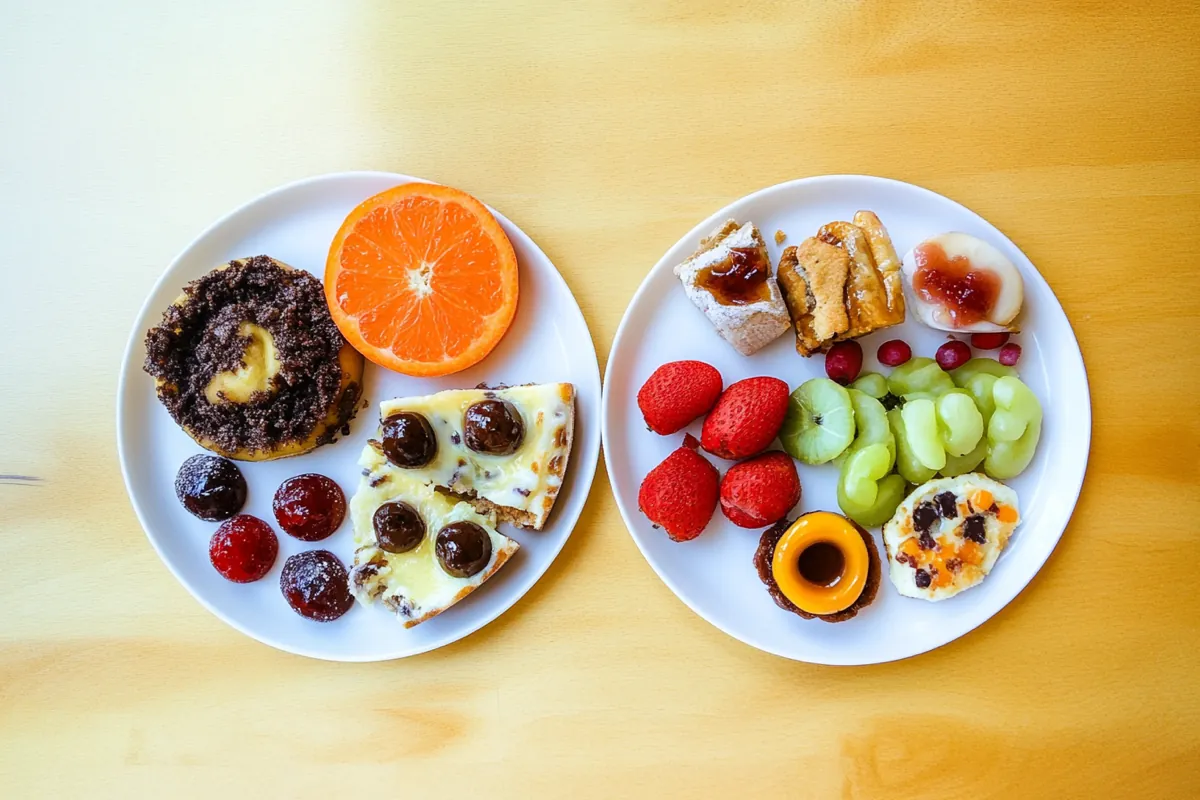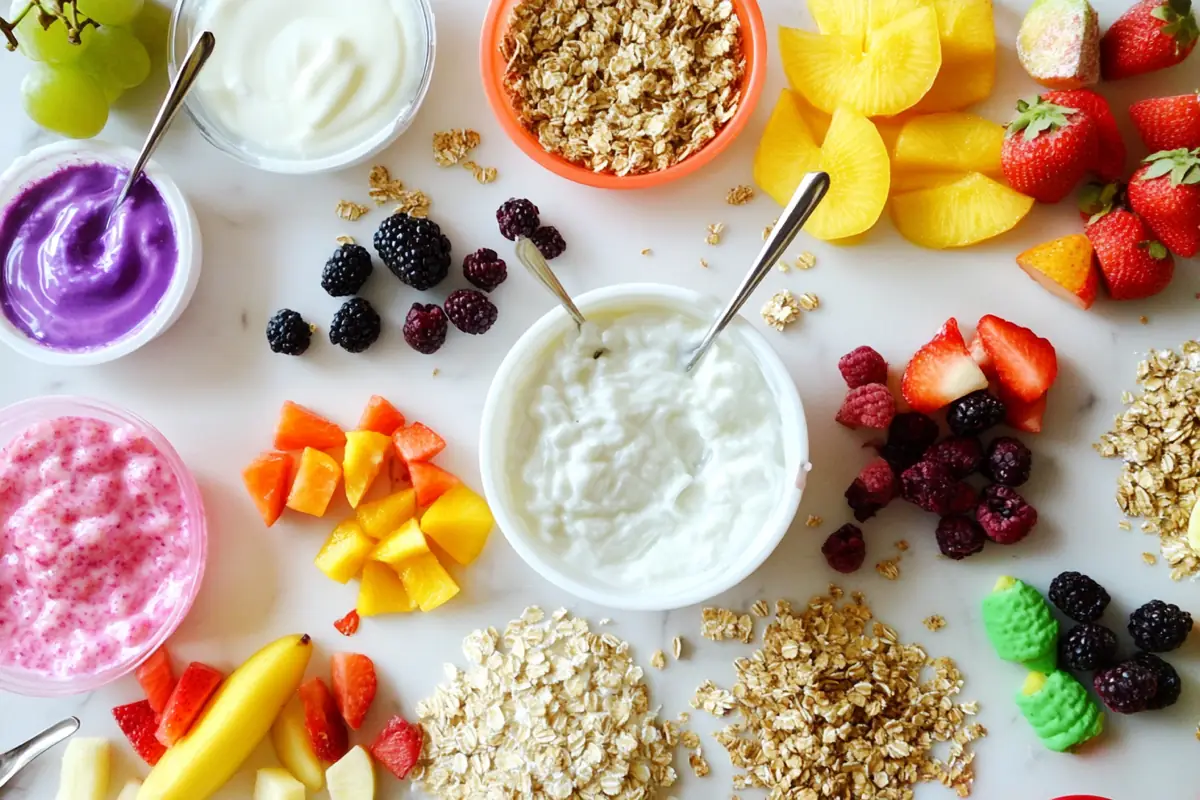Many people love starting their day with something sweet. However, this popular habit might not be the best choice for your health. In this article, we will explore the reasons why it’s not advisable to eat sweets in the morning. We’ll look at the biological impacts, psychological effects, and better alternatives. Understanding these aspects can help you make healthier breakfast choices and set the right tone for your day.
Table of Contents
Introduction
The allure of sugary breakfast items is hard to resist. From fluffy pancakes drizzled with syrup to sugary cereals, many enjoy a sweet start to their mornings. However, it’s essential to consider the consequences of eating sweets first thing in the day. Not only can it affect your mood and energy levels, but it can also lead to harmful health effects over time.
The Popularity of Morning Sweets
Morning sweets are a staple in many cultures. Breakfast pastries, muffins, and donuts are often seen as comforting and satisfying. However, this popularity raises questions about their impact on our health. While they might provide a quick energy boost, the long-term effects can be detrimental.
Overview of Sugar Consumption in the Morning
A significant number of people consume sugary foods for breakfast. Studies show that nearly 60% of breakfast eaters choose options high in sugar. This trend can lead to various health issues, including weight gain, diabetes, and heart problems. Understanding the consequences of these choices is essential for making healthier decisions.
The Biological Impact of Sugar on an Empty Stomach
Eating sweets in the morning can trigger several biological responses in your body. Let’s dive into how sugar affects your system when consumed on an empty stomach.
Sugar Level on Empty Stomach: What Happens?
When you consume sugar on an empty stomach, your body reacts quickly. The sugar enters your bloodstream, causing your blood sugar levels to spike. This rapid rise is often followed by a crash, leaving you feeling tired and sluggish.
Understanding Blood Sugar Fluctuations
Blood sugar fluctuations can lead to feelings of fatigue and irritability. When you eat sugar, your body releases insulin to help manage these levels. However, if you consume too much sugar, it can overwhelm your system, leading to severe fluctuations that affect your energy and mood throughout the day.
The Role of Insulin in Sugar Metabolism
Insulin plays a crucial role in how your body processes sugar. After eating sweets, your pancreas releases insulin to help transport glucose into your cells. However, frequent consumption of sugary foods can lead to insulin resistance, a condition where your body no longer responds effectively to insulin. This situation can result in chronic health issues, including type 2 diabetes.
Eating Sugar on Empty Stomach Pain: Causes Explained
Eating sugar on an empty stomach can sometimes lead to discomfort. Many individuals report experiencing pain or nausea after consuming sweets first thing in the morning.
Nausea and Digestive Discomfort
Nausea is a common reaction for many people. The sudden influx of sugar can irritate your stomach lining, leading to digestive issues. This discomfort can distract you from your daily activities and affect your overall well-being.
Potential Long-term Health Effects
Over time, the practice of eating sweets for breakfast can have lasting effects on your health. From weight gain to increased risk of metabolic disorders, the implications are serious. Understanding these risks can motivate you to reconsider your breakfast choices.
In summary, while morning sweets may seem appealing, the biological impacts can be harmful. The effects on blood sugar levels, insulin response, and digestive health underscore why it’s crucial to rethink this habit. In the next section, we will explore the psychological effects of eating sweets in the morning and discuss healthier alternatives.

Psychological Effects of Eating Sweets in the Morning
Eating sweets in the morning can have profound psychological effects. It’s not just about the immediate pleasure; the long-term implications can affect your mental health and overall well-being.
Sugar Cravings and Their Psychological Impact
One of the primary reasons people turn to sweets in the morning is due to sugar cravings. These cravings can create a cycle that’s hard to break. When you consume sugar, your brain releases dopamine, a chemical associated with pleasure. While this might feel good temporarily, it can lead to an increased desire for sweets over time.
- Cycle of Cravings: The more sugar you eat, the more you crave it. This cycle can lead to dependency on sugary foods, making it challenging to opt for healthier choices later in the day.
- Mindless Eating: Many individuals consume sweets without thinking about their choices. This mindless eating can contribute to unhealthy habits and weight gain.
Mood Swings and Energy Levels
Eating sweets in the morning can significantly influence your mood. The quick surge of energy from sugar is often followed by a crash, which can leave you feeling drained and irritable.
- Energy Peaks and Troughs: Consuming sugar leads to an initial spike in energy levels. However, this is typically followed by a rapid decline, making you feel fatigued. As a result, your productivity can suffer, leading to a frustrating day.
- Emotional Volatility: The energy crashes can lead to mood swings. You might feel happy after eating sweets, but the subsequent drop can leave you feeling anxious or sad. This fluctuation can affect your interactions with others and your overall happiness.
The Worst Time of Day to Eat Sugar
While any time of day might not be ideal for sugar consumption, mornings can be particularly detrimental. Let’s explore why.
Morning vs. Other Times: A Comparison
Mornings are often considered the worst time to eat sugar because your body is just waking up from a fast. During this period, your body needs nutritious fuel to kickstart its functions.
- Metabolic Response: Eating sweets in the morning can disrupt your metabolic processes. Your body is more sensitive to sugar right after waking, which means that consuming it can lead to more pronounced blood sugar spikes.
- Setting the Tone for the Day: Starting your day with sugar can influence your food choices for the rest of the day. If you begin with sweets, you might find yourself craving unhealthy options later.
Best Time to Eat Sweets for Weight Loss
If you enjoy sweets, timing can make a difference. The best time to eat sweets is often later in the day, ideally after a balanced meal.
- Balancing Nutrients: Consuming sweets after eating a meal allows your body to better manage blood sugar levels. The presence of protein and fiber can help slow down sugar absorption, reducing the risk of spikes.
- Satisfaction without Guilt: Enjoying sweets in moderation, particularly after healthy meals, can satisfy cravings without leading to significant health issues.
Timing and Metabolism: What Research Says
Research indicates that when you consume sugar can affect your metabolism. Eating sweets in the morning can lead to increased fat storage compared to consuming them later in the day.
- Circadian Rhythms: Our bodies have natural rhythms that affect metabolism. Eating sweets at night, when your body is winding down, may be less impactful than indulging early in the day.
Ideal Snack Options to Curb Sugar Cravings
Instead of reaching for sweets in the morning, consider healthier snack options. Here are some alternatives:
- Fruits: Fresh fruit can satisfy your sweet tooth while providing essential nutrients.
- Nuts: A small handful of nuts can provide healthy fats and protein to keep you full.
- Yogurt: Opt for plain yogurt with a drizzle of honey for a healthier sweet option.
Long-term Consequences of Morning Sugar Consumption
The long-term implications of consistently eating sweets in the morning can be significant. Over time, this habit can contribute to various health issues.
- Weight Gain: Frequent sugar consumption can lead to weight gain and obesity. This condition is linked to numerous health problems, including heart disease and diabetes.
- Increased Risk of Chronic Diseases: Regularly consuming high amounts of sugar can increase your risk for chronic diseases, including insulin resistance and metabolic syndrome.
In conclusion, while the occasional sweet treat can be enjoyable, making it a morning habit can lead to various psychological and physical consequences.

Nutritional Alternatives to Morning Sweets
If you’re used to starting your day with sugary treats, it’s time to explore healthier alternatives. Making small changes to your breakfast can significantly enhance your energy levels and overall health throughout the day.
Healthier Breakfast Options
Instead of reaching for pastries or sugary cereals, consider these healthier breakfast choices that provide essential nutrients without the sugar crash:
- Oatmeal: A bowl of oatmeal topped with fresh fruits and a sprinkle of nuts provides fiber and keeps you feeling full longer.
- Smoothies: Blend your favorite fruits with spinach or kale for a nutrient-packed breakfast. Adding yogurt or protein powder can also boost its nutritional value.
- Eggs: Eggs are a fantastic source of protein. Try them scrambled, poached, or in an omelet with veggies for a satisfying start to your day.
Incorporating Natural Sugars vs. Processed Sugars
When it comes to sugar, not all types are created equal. Choosing natural sugars over processed options can make a significant difference.
- Natural Sugars: Found in fruits, honey, and maple syrup, these sugars come with vitamins, minerals, and fiber, making them healthier options.
- Processed Sugars: These are often found in candies, pastries, and sugary cereals. They provide empty calories without any nutritional benefits, leading to cravings and energy crashes.
Balanced Breakfast Strategies
Creating a balanced breakfast is essential for maintaining energy levels throughout the day. Here are a few strategies to help you build a healthier morning meal:
- Combine Food Groups: Aim for a mix of protein, healthy fats, and complex carbohydrates. This combination will keep you full and satisfied longer.
- Portion Control: Be mindful of portion sizes. Eating too much at breakfast can lead to sluggishness, while eating too little can leave you craving sweets.
- Plan Ahead: Preparing your breakfast the night before can prevent reaching for quick sugary options in the morning. Overnight oats or smoothie packs are great time-savers.
Protein and Fiber: The Key Ingredients
Including protein and fiber in your breakfast is crucial for feeling satisfied and energized. Here’s why:
- Protein: Foods like eggs, Greek yogurt, or nut butter help stabilize blood sugar levels and keep you full longer.
- Fiber: Whole grains, fruits, and vegetables provide fiber that aids digestion and promotes a feeling of fullness.
Tips for Reducing Sugar Consumption in the Morning
Reducing sugar in your morning routine doesn’t have to be difficult. With some planning and awareness, you can easily transition to healthier breakfast choices. Here are some effective strategies to help you get started:
Planning Your Breakfast: Strategies for Success
Planning is key to making healthier breakfast choices. Here are some tips to ensure you start your day right:
- Prepare Ahead: Spend some time on the weekend to prepare your breakfast for the week. Overnight oats, smoothie packs, or pre-portioned nuts can save you time and prevent the temptation of sugary options.
- Keep Healthy Options Visible: Store fruits, nuts, and yogurt in places that are easy to reach. When they’re visible, you’ll be more likely to choose them instead of sugary snacks.
- Create a Breakfast Menu: Make a list of healthy breakfast options that you enjoy. This will help you stick to your goals and avoid the temptation of sugary sweets.
Mindful Eating: Being Aware of Sugar Intake
Mindful eating is a powerful tool in reducing sugar consumption. Here’s how to practice it effectively:
- Slow Down: Take your time while eating breakfast. This practice allows you to enjoy your food and recognize when you’re full, reducing the chances of overeating.
- Pay Attention to Ingredients: Always check labels when buying breakfast foods. This awareness can help you identify hidden sugars and make healthier choices.
- Listen to Your Body: Tune into how your body feels after different meals. This awareness can help you understand what works best for you and adjust your diet accordingly.
Conclusion: Embracing Healthier Morning Habits
Transitioning to healthier breakfast habits can significantly enhance your overall well-being. By understanding the impacts of sugar and making informed choices, you can set a positive tone for your day.
Summary of Key Points
- Eating sweets in the morning can lead to blood sugar spikes and energy crashes.
- Healthier breakfast options, such as oats, fruits, and proteins, provide lasting energy.
- Planning and mindful eating can help reduce sugar consumption and promote healthier habits.
Encouragement for a Balanced Breakfast
Embrace the idea of a balanced breakfast. Remember, it’s about nourishing your body and fueling your day. You deserve to feel energized and ready to tackle whatever comes your way!
Final Thoughts on Morning Sugar Consumption
While the allure of sugary breakfasts is strong, the long-term effects can be detrimental. By making simple changes to your morning routine, you can improve your health, mood, and energy levels. Take the first step today by choosing healthier alternatives!
Call to Action: Share Your Morning Routine
What are your favorite healthy breakfast options? Share your morning routine with friends or family to inspire them to make healthier choices too. Together, we can create a community that values nutritious eating and well-being.
FAQ
Is Eating Sweets in the Morning Bad?
Yes, eating sweets in the morning can lead to blood sugar spikes followed by crashes, affecting your energy and mood throughout the day.
Why Should You Not Have Sugar in the Morning?
Eating sugar in the morning may disrupt your metabolism, leading to cravings later in the day and potential long-term health issues.
Is It Bad to Eat Sweet Foods for Breakfast?
Consuming sweet foods for breakfast can contribute to weight gain and increased risk of chronic diseases. It’s better to choose healthier options to fuel your day.
Is It Bad to Eat Sugar When You Wake Up?
Yes, eating sugar right after waking up can lead to digestive discomfort and blood sugar fluctuations, making it less than ideal for your health.




